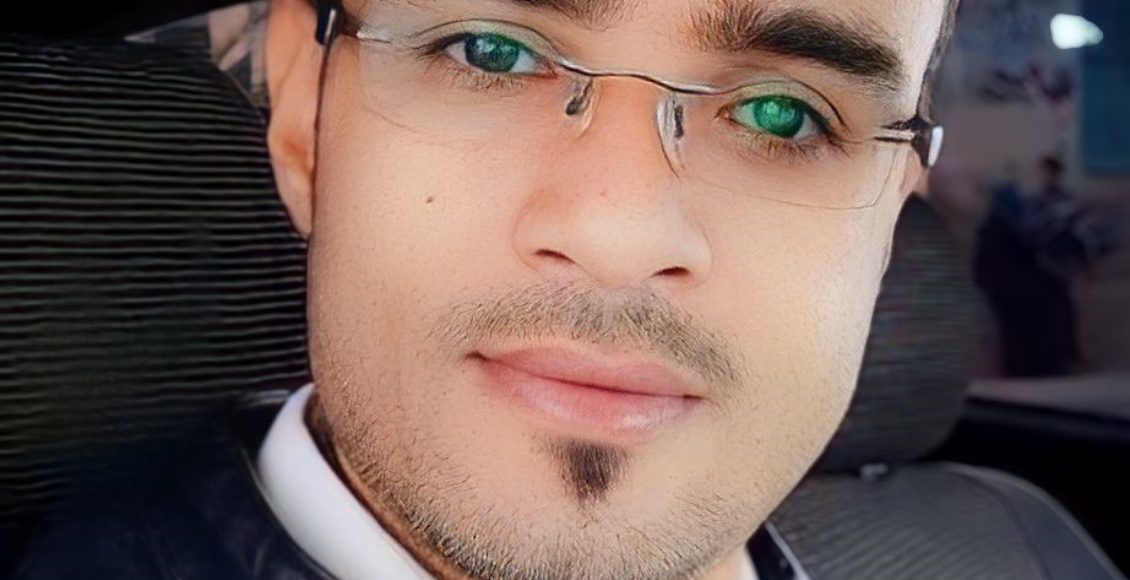
Professional murder of journalist and suspects outside the indictment
Context of the story April 27, 2024
Fawaz Ali Ahmed Alwafi
Time of violation: March 22, 2022
Place of violation: Taiz
Type of violation: killing
Perpetrator of the violation: Unknown
Before he was found dead in his car, journalist Fawaz Al -Wafi, 39, was active in Taiz governorate, in the part under the control of the internationally recognized Yemeni government.
According to his family, Al-Wafi was close to a group of activists working to provide humanitarian aid provided by anonymous sources. His involvement with the group, made him learned a lot about a network engaged in antiquities smuggling and money laundering, and after that, he was engaged in an argument with the activists.
On March 22, 2022, the security services in Taiz city found journalist Fawaz Al-Wafi dead inside his car with signs of torture. Ruturning to the surveillance cameras, the movements of the victim’s car were monitored from the moment he left his home until the moment it disappeared in the down place of Almasbah area in the center of Taiz city, and then it appeared again in Wadi Al-Qadi area with Al-Wafi’s body in it .
The Police have identified several suspects, witnesses and possible motives for the journalist’s death, but have been unable to link the suspects to the available evidence. The homicide department of the Criminal Investigation Department has taken over the investigation of about 22 people, including 15 suspects.”We reserve names.”
Investigations indicated that Al-Wafi’s killing was linked to his professional activities, and suspicions revolved around the group with which Al-Wafi was involved, which was providing humanitarian aid from unknown origin.
The case reached the court, which ordered the Public Prosecution to investigate the rest of the defendants. However, the prosecution decided that there was no evidence against a number of suspects and removed them from the indictment despite the availability of evidence indicating their participation in the crime, while the prosecution presented an intelligence officer named Hisham Ali Mohammed as a first-degree defendant, despite the lack of evidence against him, according to our knowledge of the case file.
At the Free Media Center for Investigative Journalism, we interviewed various sources relevant to the case of Al-Wafi murder: lawyers, security investigators, prosecutors, and the victim’s family, and we interviewed witnesses who have not yet spoken to the police for fear of reprisals. In addition to obtaining a judicial file consisting of about 700 pages, and through the analysis of data, information, facts, procedures, and legal texts, it is clear that the killing of journalist Fawaz Al-Wafi was an organized operation and was committed by a group of perpetrators with prior planning and execution with high professionalism, in terms of luring and the moment of execution, the place of execution, the concealment of traces, the multiplicity of crime scenes and the erasure of evidence.
A criminal investigation officer said that the real perpetrators could have been reached if the Public Prosecution had written memos to telecommunications companies and requested text messages for all suspects, stressing that the criminal investigation addressed the telecommunications companies but did not receive any response.
The Public Prosecution also neglected other reports about mapping signals using telephone antennas near the crime scene, to identify the signals of each suspect and compare them with the content of their statement about their presence and movements on the day of the killing of Fawaz Al-Wafi, to help identify the perpetrators and masterminds of the journalist’s murder.
*Free Media for investigative journalism calls on fellow journalists, activists and human rights organizations to advocate for the cases of Yemeni journalists and activists who have been subjected to violations in the past years, and to work to activate justice and hold the perpetrators of these violations accountable
Note
This brief summary is part of the “For the Truth” project, within which an in-depth report on the situation will be published during the current year 2024.

